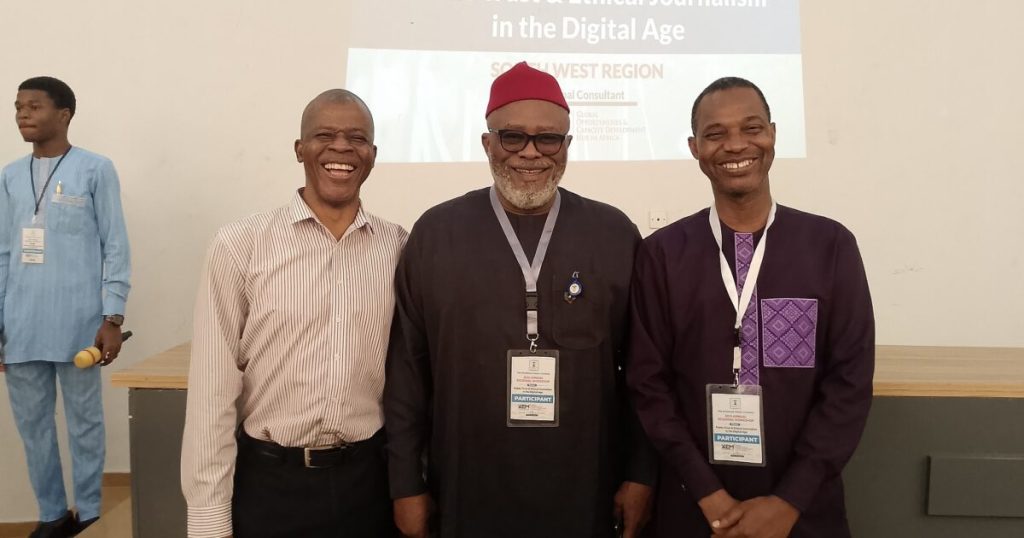The Nigerian media landscape is grappling with the pervasive issue of fake news and misinformation, a problem significantly fueled by financial inducements. The Nigerian Press Council (NPC) has identified this profit motive as the primary driver behind the fabrication and sensationalization of information. Individuals and organizations, motivated by the potential for financial gain, deliberately create and disseminate misleading stories to attract clicks, traffic, and ultimately, revenue. This parallels the motivations behind criminal activities, where the pursuit of money overrides ethical considerations. The NPC emphasizes the urgent need for sustained media literacy and education to empower citizens to critically evaluate information and resist manipulation by purveyors of fake news. This education should emphasize the importance of verifying information from multiple sources before accepting it as factual.
While financial incentives are the core driver, the spread of fake news is also influenced by other factors, including political, religious, and ethnic motivations. These factors often intersect with the desire for financial gain, creating a complex web of motivations that contribute to the proliferation of false narratives. The NPC, however, maintains that financial interests remain the central issue, underlying the other contributing factors. This highlights the need for a multi-pronged approach to combatting fake news, addressing both the financial incentives and the underlying socio-political motivations.
Restoring public trust in the media necessitates a renewed commitment to professionalism and ethical conduct among journalists. The digital age has witnessed a surge in individuals posing as journalists, further blurring the lines between credible reporting and misinformation. The NPC stresses the importance of upholding journalistic standards to differentiate legitimate news sources from those driven by profit or other ulterior motives. This includes adhering to principles of accuracy, fairness, and impartiality in reporting.
Fact-checking emerges as a crucial tool in the fight against misinformation. Experts advocate for the establishment of dedicated fact-checking desks within newsrooms to enhance credibility and ensure the accuracy of published information. This rigorous verification process is particularly critical in the context of political reporting, where holding public officials accountable requires meticulous scrutiny of their claims. By implementing fact-checking mechanisms, news organizations can demonstrate their commitment to accuracy and build public trust.
The evolving media landscape demands a shift in journalistic practices. Traditional top-down reporting, where journalists distance themselves from communities, is becoming increasingly irrelevant. Instead, reporters must engage with communities, actively listening to their concerns and perspectives. This participatory approach strengthens the connection between the media and the public, fostering trust and facilitating the flow of accurate information. Furthermore, the indiscriminate use of the term “citizen journalism” needs careful reconsideration. The proliferation of bloggers and influencers, while contributing to the diversity of voices online, also blurs the lines between trained professionals and those lacking journalistic training. The distinction between professional journalism and citizen contributions is crucial to maintaining standards of accuracy and accountability. Possessing the tools of journalism, such as cameras and social media platforms, does not automatically qualify an individual as a journalist. Formal training, ethical adherence, and a commitment to journalistic principles are essential components of professional journalism.
The responsible integration of technology in newsrooms is essential for navigating the digital age. Journalists must embrace technological advancements while upholding ethical standards and remaining focused on the needs of their audience. Versatility is paramount in the digital landscape, requiring journalists to adapt to new platforms and formats while maintaining their core journalistic principles. The commercialization of the press, while necessary for sustainability, poses a significant threat to ethical standards when financial pressures override journalistic integrity. Maintaining a balance between commercial viability and ethical reporting is a critical challenge for the Nigerian media. The participants at the workshop collectively acknowledged the detrimental impact of financial desperation and unchecked commercialization on ethical standards and public trust. This shared understanding underscores the need for collaborative efforts among journalists, media organizations, and regulatory bodies to address these challenges and promote responsible journalism in Nigeria. The future of Nigerian journalism hinges on the ability of the media to adapt to the digital age while upholding the core principles of accuracy, fairness, and public service.


